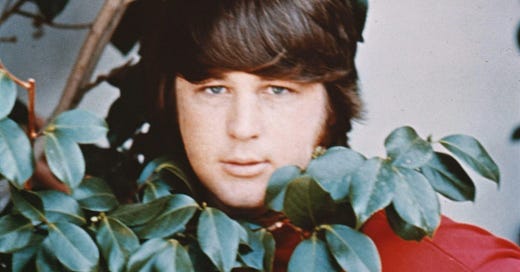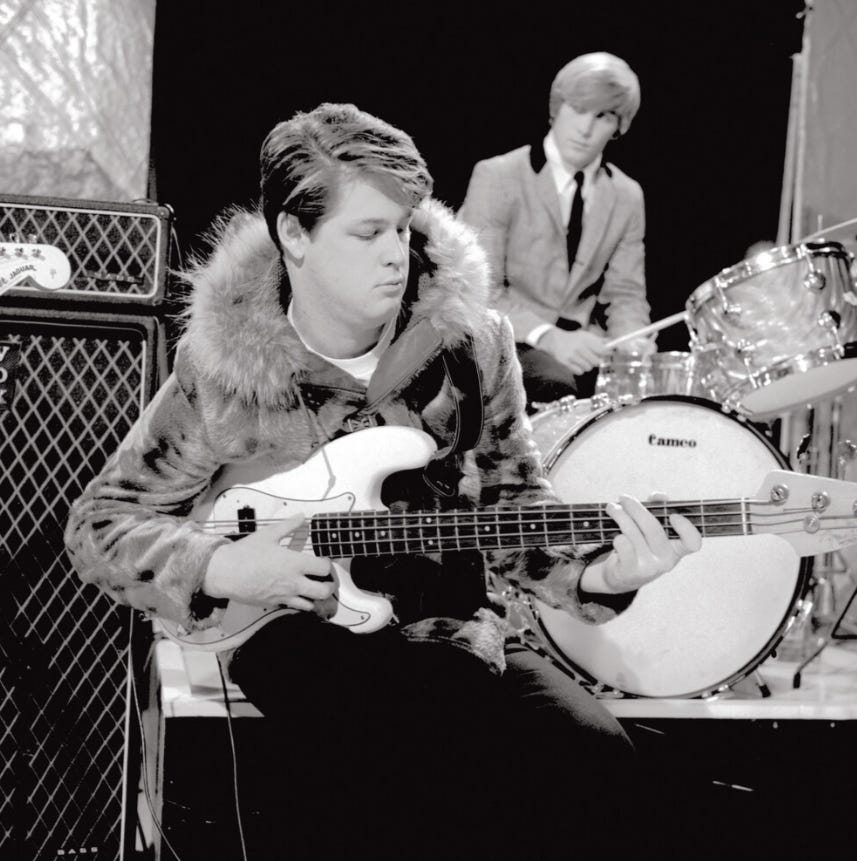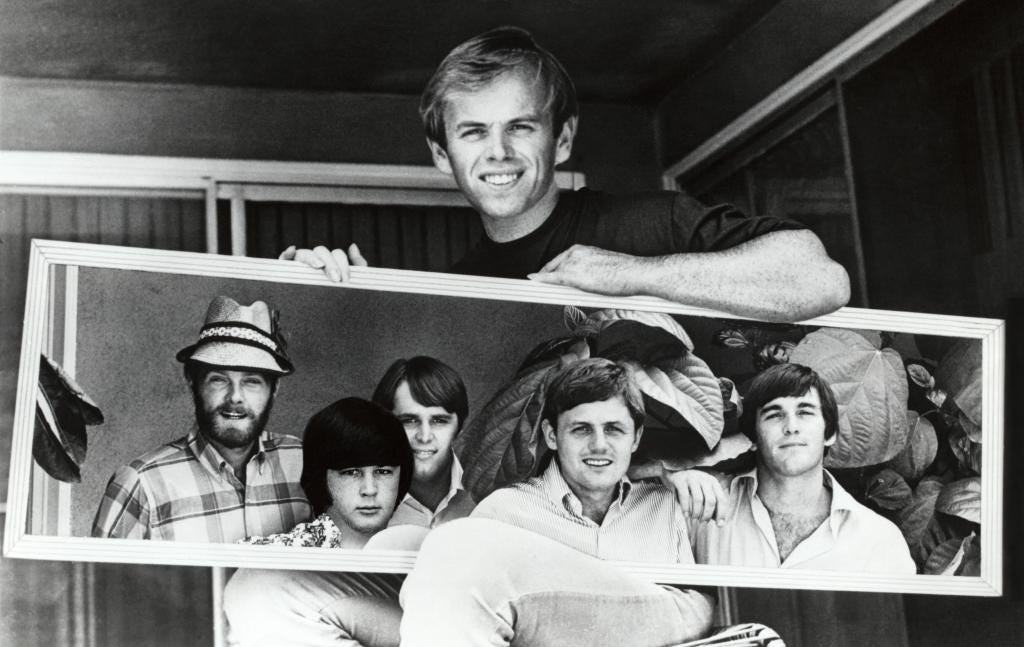Soul master Sly Stone and pop visionary Brian Wilson both departing in such close succession reminds me of that stretch back in 2016 when all of the sudden David Bowie and Prince were both gone, the very firmament of popular song shifting under our feet. While they may have skewed in opposite directions vibe wise, both Stone and Wilson similarly viewed the studio as a way of psychedelically expanding their songs, expanding the definition of pop music in the process.
I can’t help but think of that other titanic loss from earlier this year too, the passing of David Lynch. Lynch and Wilson strangely occupy similar zones: 'aw shucks gee whiz' mythic American innocence meets eternal teenage romance meets brain bending cosmic expansion meets the absolute depths of loneliness and spectral ennui. There is some strange poetry at work in all of them passing this year. Another closing of an age.
A full decade ago, I interviewed him about his final studio album, 2015’s No Pier Pressure. No Lulu or Blackstar, this is a late period effort more in the Santana’s Supernatural mold, IE pairing younger and commercially relevant artists with an elder statesman (though yes, technically Lulu does that too, you know what I mean). This was to be my second interview with him, following a talk for the same feature that produced that Al Jardine interview I shared here a few weeks back.
His publicist suggested we could speak in person, which meant driving out of Phoenix in the wee hours to be at the Capitol building in Los Angeles for a 9 AM talk. My wife and I dutifully made the trek, excited to tour Capitol after my interview with Wilson.
Suffice it to say, this conversation ended up taking place via phone a week or so after that LA trip, which never resulted in an interview with Wilson (or a Capitol building tour for that matter). Here are a few excerpts; for the full thing, visit subscriber-supported Aquarium Drunkard.
There are a lot of different sounds on No Pier Pressure—some dance elements, some pop songs, and lots of Beach Boys-evoking moments.
We wanted to make some good harmonies, like the 1960s Beach Boys harmonies. We wanted to make some good harmonies, you know, so people could enjoy it. I wanted to try something different and new. What we did was we’d take a song, we’d write the chord pattern, then we’d write the melody, then we would write the words. And when it’s done it’s time to produce it, so I’d go in…I produced Nate Ruess, you know from a group called fun. and Zooey Deschanel on a song called “On the Island.”
“The Last Song” is really beautiful too, but it’s kind of sad. What influenced your decision to close on a nostalgic song like that?
Well, we wanted to end the album with a farewell song. Which we did—I thought we did pretty good on it. I did a vocal on that one…it’s a very sad kind of a song about breaking up with someone and the end of a relationship. It was kind of tough recording it.
It sounds like there’s a lot of emotion in that one.
There is. There really is.
Do you feel like there are more people you might like to work with on the next one?
No, we’re not going to have the singers, the guest artists, anymore. I’m going to make a rock & roll album, a tribute album to the really great guys of rock: Chuck Berry, Paul McCartney, Elton John. You know, the greats. We’re going to do an album playing their songs. [Note: this project did not materialize or at least hasn’t been released.]
Was it difficult to watch the biopic, Love and Mercy?
It was. It was very difficult because it brought back a lot of memories from when I was taking drugs and stuff. It was a rough one.
It must have been a trip watching Paul Dano portray you when you were younger. Watching the trailer, it’s surprising just how much he looks like you.
It was quite an experience—it was very different.
Do you mean good different or bad different?
Good different. Good different.
It’s been a real incredible run for you the last ten or so years — between Smile, Lucky Old Sun, the new record, and your other projects. Do you have any reflections on the last decade?
Each year has just got better and better.
Read the full interview at subscriber supported Aquarium Drunkard
‘Til I Die
A bonus for those who have read this far: that failed Los Angeles trip (what can I say, the city has been on my mind as these protests against unjust forces unfold) was to be my second interview with Wilson. As I eluded, we’d talked a time before, and after discussing the then-pressing The Beach Boys’ 50th anniversary engagements, I was able to tell Brian, with the recorder no longer running, that I thought “'Till I Die,” from 1971’s Surf’s Up is a masterpiece of spiritual longing and vulnerability on par with Ecclesiastes or other Biblical poetry. Giving it less than a second thought he responded with trademark deadpan: “Yeah that one’s OK.”
Al Jardine On The Beach Boys’ Wild and Woolly Days
Though often overshadowed by Brian Wilson’s staggering genius and Mike Love’s general infamy, Al Jardine is, to quote a Reddit headline, “The Swiss Army Knife of The Beach Boys,” a utility player who gets in where he fits in and makes the whole enterprise work a little better. He’s also the Beach Boy I’ve always connected to the most on a personal level…






